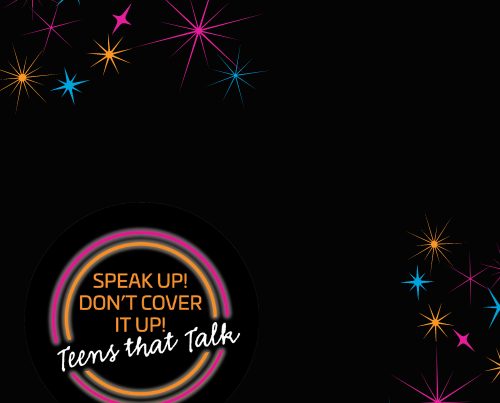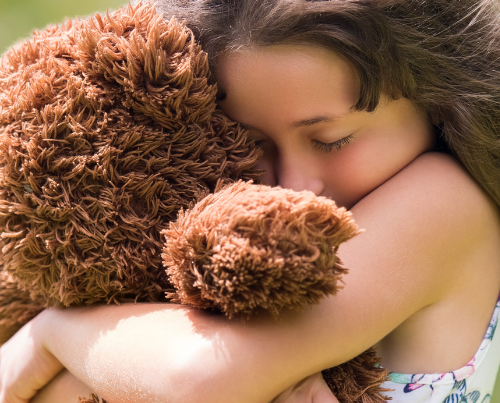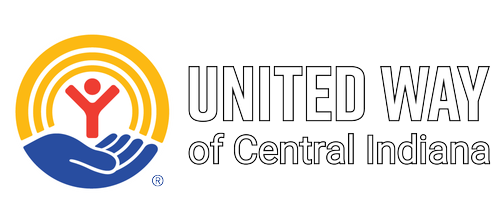“Love is trust.”
“Love is respect.”
“Love is being with someone who treats you right.”
Those were the prevailing sentiments at the 2019 Avon (Indiana) High School Mental Health Fair, when Sheltering Wings’ Teens That Talk activists asked fellow students to share their definitions of love.
They’re aspirational statements. However, many teen dating relationships fall far short of these ideals.
Why do teens have trouble saying – or accepting – “no”?
How teens will treat one another starts in childhood. Kids model the behavior they see. According to a Harvard Graduate School of Education study, children start reflecting any disparaging gender beliefs they’ve heard from family, peers and society by the time they’re 10.[1]
So many of these negative, derogatory beliefs have innocent roots. In a 2017 study,[2] researchers concluded that “schools, parents, media and peers reinforce the myths that girls are vulnerable and potential victims” and that boys are “strong, independent” and threatening to girls. And it’s no wonder; over the generations, how many moms and dads have told their daughters it is necessary to suppress or hide their beauty thinking they are protecting them? How many schools set stricter dress codes for girls than boys? How many people secretly blame the teenage mother for getting pregnant because “boys will be boys”?
Most of us are guilty, but we have the power to change the future.
Stopping the Cycle
Conversation is the first step toward altering the behaviors of harassers and the harassed. Three out of four teens have never talked about sexual harassment with a parent.[3] Meanwhile, young girls are bombarded with the casual use of demeaning insults, reckless name-calling, as if these are perfectly acceptable ways for others to address them. They see unhealthy relationships in the media and online. It all starts to seem normal.
Start by looking for these three ways to start a conversation with teens about harassment:
- Give your teens real-life examples of respect. For instance, when you hear someone whistling or catcalling at another person, point out that many girls and boys don’t consider it a compliment.
- Share your own experiences. We all were teenagers once, subject to the many heart-breaking and mean-spirited behaviors of our peers. Talk about what you did at the time and get their input on what else you could’ve done.
- Include their friends in these conversations. When you hear your teen’s friends calling each other derogatory names, ask them why they tear each other down instead of building each other up. You don’t have to appear judgmental; just get them thinking about an alternative way to interact.
Adults must begin modeling the behaviors we want to see in our teens and intervening when they’re being disrespected or threatened. They need our help (whether they’ll admit it or not).
For more reading:
Location Sharing: A Fine Line Between Caring and Distrust
Talking With Teens About Healthy Relationships
—
February is Teen Dating Violence Awareness and Prevention Month (#TDVAM20).
Sheltering Wings’ Youth Council offers a panoply of ideas and resources for educating teens and adults in your spheres of influence during Teen Dating Violence Awareness and Prevention Month:
Feb. 3 | Campus Announcement Day
Students share a message declaring February to be Teen Dating Violence Awareness and Prevention Month
> More information
Feb. 11 | Wear Orange Day
Prompt conversations about teen dating violence by wearing orange (#Orange4Love). Share on social media.
> More information
Feb. 13 | School Policy Action Day
Youth meet with school administrators to assess school policies and make recommendations for solutions. Make sure your school has a policy addressing dating violence, sexual harassment and stalking.
> More information
Feb. 19 | Online Rally
Social media push for action.
> More information
Feb. 24-28 | Chalk About Love
Create visual art to spread love and support and to prompt change (#ChalkAboutLove).
> More information
Feb. 25 | Hop For Hope at Sky Zone
Bring teens together for a dodgeball tournament, wall-to-wall trampolines and dating education
> More information
Getting information to teens is the best way to prevent dating abuse. Teens That Talk is group of students sharing no-holds-barred information about healthy relationships and teen dating violence in schools, communities and social circles. Contact Melissa Echerd at (317) 386-5061 to talk about joining this group or inviting them to your event.
—
[1, 3] Harvard Graduate School of Education. “Preventing Sexual Harassment at School.” https://www.gse.harvard.edu/uk/preventing-sexual-harassment-school
[2] Blum, W., Mmari, K., Moreau, C. “It Begins at 10: How Gender Expectations Shape Early Adolescence Around the World.” Journal of Adolescent Health 61 (2017).







